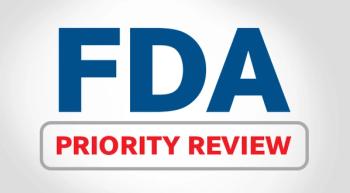
The potential approval offers hope to the rare blood cancer, which currently has no standard of care treatment protocol.

Brielle Benyon, Assistant Managing Editor for CURE®, has been with MJH Life Sciences since 2016. She has served as an editor on both CURE and its sister publication, Oncology Nursing News. Brielle is a graduate from The College of New Jersey. Outside of work, she enjoys spending time with family and friends, CrossFit and wishing she had the grace and confidence of her toddler-aged daughter.
Follow Brielle on Twitter @Brielle_Benyon.

The potential approval offers hope to the rare blood cancer, which currently has no standard of care treatment protocol.
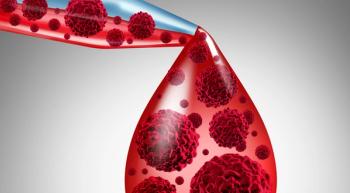
Although the amount of treatment options for the frontline setting of multiple myeloma may be limited, extensive research is helping these efforts along.
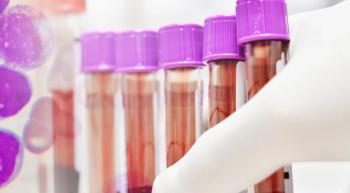
Simply knowing who to screen, and when, could reduce myeloma-related mortality rates, according to recent research.

Women felt that they could not show emotions of fear or vulnerability in front of their husbands or children.

As more people in the United States become addicted or face opioid overdoses, health care professionals are starting to take a step back and re-evaluate their prescribing habits.

Sometimes patients may not report side effects to their health care team, in fear of their oncologist taking them off a drug that could prolong their survival.

The Food and Drug Administration (FDA) granted priority review to the combination use of Opdivo (nivolumab) and Yervoy (ipilimumab) to treat a subgroup of patients with metastatic colorectal cancer.

Many aspects of going through cancer can be overwhelming or difficult to navigate, so it is important that survivors have resources to help them navigate from the point of diagnosis to beyond the moment when their treatment ends.
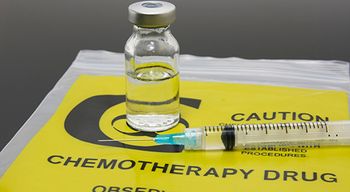
Chemotherapy can aid in making a tumor “hot” – meaning that it attracts tumor-infiltrating lymphocytes (TILs), which are linked to killing tumor cells – priming it to respond better to immunotherapy treatment.

A recent study conducted at UCLA showed that nearly all patients with uveal melanoma reported having unmet psychologic and informational needs, especially in the few months following their diagnosis.
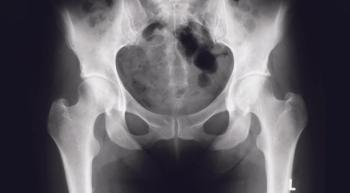
Chlamydia is the most commonly reported sexually transmitted infection in the United States, and women who contract it may be at an increased risk for developing ovarian cancer.

Ryan Hamner has battled Hodgkin lymphoma four times since the age of 5, and has had some interesting hobbies since - from gardening to metal detecting. But for Hamner, two things stuck: music and creativity.

The International Myeloma Foundation declared March to be Myeloma Action Month to help raise awareness about the disease.

New targeted therapies and immunotherapy treatments have rapidly improved the outcomes of patients with cancer. But not everyone is so lucky to have access to these agents.

While recent breakthroughs have led to more treatment options for multiple myeloma, patients are also experiencing new side effects, stressful financial issues and psychological burdens. In turn, recent research found that this increased distress may actually have negative implications for patient outcomes.

Recently, the Cancer Support Community (CSC) conducted a survey to better grasp the challenges that patients, caregivers and clinical staff members face regarding immunotherapy. The goal is to ultimately use that information to craft an empowerment program that will improve the patient experience.

A drug that is used to treat leukemia may also have potential in treating an extremely rare kind of ovarian cancer called small cell carcinoma of the ovary, hypercalcemic type (SCCOHT).

NFL Hall of Famer Jim Kelly confirmed his cancer has returned, according to recently issued statements from the Buffalo Bills.

These findings bring light to a pressing problem in this patient population, and will hopefully pave the way for more awareness and potential change in practices.

What happens when a 20-something finds a cancerous lump in her breast and is told to come back for a mammogram at the age of 40? For one group of CrossFit fanatics, it meant the launch of a nonprofit to raise money and spread awareness about breast cancer.

A variety of factors go in to the staging of a head and neck cancer diagnosis, however, the number of malignant lymph nodes may very well be the key to prognosis and treatment moving forward in this patient population.

Treatment of HIV has drastically improved since the 1980s, but many of these individuals are still facing barriers to proper cancer care.

Ultra-processed foods include items such as packaged bread products, sweet and savory packaged snacks, industrialized desserts, highly processed and/or preserved meat products, instant noodles and soups and other shelf-stable items, which usually have a high sugar, oil and/or fat content.

While obesity is a known risk factor for more than a dozen types of cancer – and poised to take over smoking as the leading preventable cause for the disease – it may actually play a beneficial role in men with metastatic melanoma, according to a recent study published in Lancet Oncology.

Researchers from Israel, the United Kingdom (UK) and Canada sought to determine the cost-effectiveness of Keytruda for the second-line treatment of patients with advanced bladder cancer. Drug costs were compared between the US, UK, Canada and Australia.

This HPV-based test can help identify women who are at an increased risk for cervical cancer.

Fatigue is a life-altering and often long-lasting effect that impacts many cancer survivors. And while there is currently no cure for the condition, recent research presented at the 2018 Cancer Survivorship Symposium found that exercise can have both short- and long-term benefits for patients dealing with fatigue.

The mission of Barbells for Boobs is to mobilize and empower people to take action against breast cancer. The organization will help people – of all ages, and regardless of insurance status or type – to get screened by connecting them with resources in their area.

Overall survival should not be the sole factor in determining whether a drug gets approved, according to Maurie Markman, M.D.

“Obesity has been previously investigated for its role in cancer and promoting tumor growth, at least partially by inducing a chronic inflammatory state,” the authors wrote. “However, it’s unclear how this would play out in the era of immunotherapy, where inflammation has been linked to treatment response.”